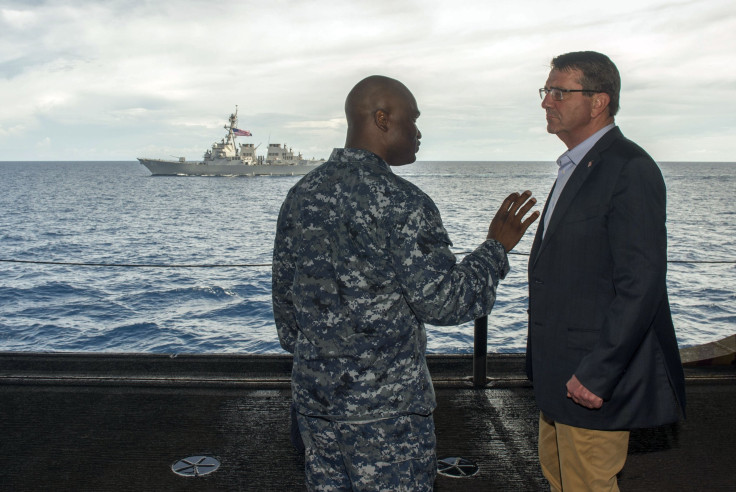Another US Patrol In South China Sea Unlikely This Year, Defense Officials Say

The U.S. Navy is unlikely to carry out another patrol within 12 nautical miles of Chinese-built islands in the South China Sea this year as officials had initially suggested, three U.S. defense officials said on Monday.
Naval commanders had hoped to carry out another "freedom of navigation" exercise in the region as early as December as part of a plan to regularly send vessels into the area and exercise what the United States views as its rights under international law, officials have said.
But the Obama administration, which is weighing the risks of raising tensions with Beijing at a time when the United States is focused on the fight against Islamic State, has not approved the next such patrol, said the officials, who asked not to be named.
One official said the next U.S. Navy sail-by was likely to come in January, in what would be the second direct challenge to the territorial limits China effectively claims around seven artificial islands in one of the world's busiest sea lanes.
The Navy conducted a similar exercise in October to underscore the U.S. position that the crucial sea lane should be treated as international waters.
In that exercise, the guided missile destroyer Lassen sailed close to one of China's manmade islands in October, drawing an angry rebuke from China and a shadowing patrol.
Pentagon spokesman Bill Urban on Monday declined to comment on future plans for Navy operations. "As Secretary (of Defense Ash) Carter has stated, the United States will fly, sail or operate anywhere international law allows," he told Reuters.
The Lassen's October mission came after months of frustration within the Pentagon at what some defense officials saw as unnecessary delays by the White House in approving the mission.
China claims most of the South China Sea, through which more than $5 trillion of world trade ships every year. Vietnam, Malaysia, Brunei, the Philippines and Taiwan have rival claims.
While the U.S. Navy is expected to keep its technological edge in Asia for decades, China's potential trump card is sheer weight of numbers, with dozens of naval and coast guard vessels routinely deployed in the South China Sea, security experts say.
President Barack Obama last month demanded that China halt land reclamation work that is turning seven reefs into artificial islands, including some where China is building airfields and other facilities.
China's navy has carried out more exercises in the South China Sea in recent days, its defense ministry said on Sunday.
China views the U.S. patrols, along with flights last month of American B-52 bombers near some of the islands, as a provocation. Last week, China also said an agreement between the United States and Singapore to deploy a U.S. P-8 Poseidon spy plane to the city-state was aimed at militarizing the region.
(Reporting by Andrea Shalal; Editing by Tim Ahmann and Jonathan Oatis)
© Copyright Thomson Reuters 2024. All rights reserved.





















